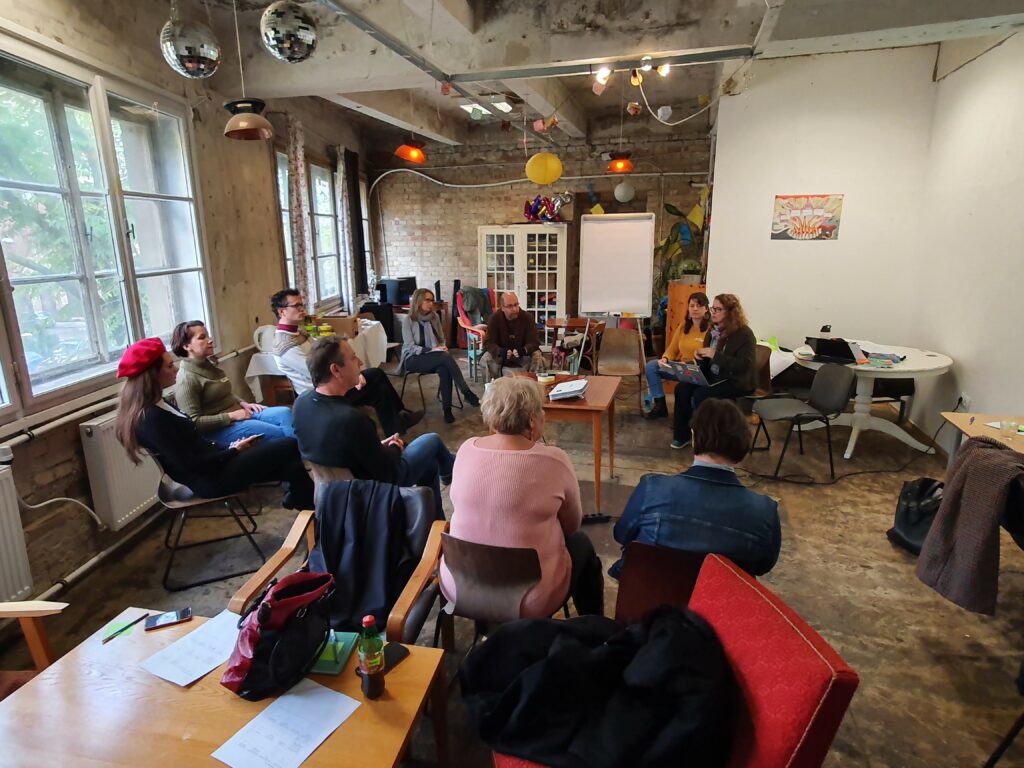
Strengthening workers’ power in the Hungarian care sector
Category: Public health, care and welfare
Community Members: Szövetkezetiséget Támogató Egyesület
Type of grant: Rethink [ 5.000 € ]
Year: 2022
1. Who they are
The Solidarity Economy Center, Budapest and the Hungarian Social Workers’ Union have been collaborating since the beginning of the pandemic. The aim of our collaboration is to build a resilient trade union in the care sector – a sector of essential work that is among the least unionized within the Hungarian economy. In the past 1,5 years, they ran union campaigns in a large homeless care institution in Budapest, and in an elderly care institution in Pécs. In these two locations, about two dozen worker leaders helped to coordinate and run the campaigns. Plus, multiple hundred social workers participated in several workplace actions. In order to grow beyond these two locations the two organizations kickstarted a collaborative study project where workers and union organizers together would investigate already existing examples and best practices of organizing in the social care sector – with a special focus on Eastern European projects.
2. What they did
The questions that drove the organization at the beginning of 2022 were: 1) What does effective union organizing look like in such a decentralized and “invisible” sector, such as care work? 2) How can a union apply pressure on decision-makers when a strike is hardly an option in this sector?; 3) Are there any good examples of social workers’ organizing in Eastern Europe?
The research began with desk research, in order to understand the regional characteristics of organising in the social care sector. The second part of the process was to find inspiring case studies of union organising in the care sector in the post-socialist region. They found two examples that seemed particularly relevant to our case: a Czech union called ALICE and a union in Poland focusing on the care sector – and organized a few online meetings to learn from their stories. On this occasion, they discovered UNI, an international union confederation, that provided them with both methodology and support.
The last part of the learning process was a two-day strategy meeting with the Hungarian care union’s leadership. The meeting was held in Gólya community center and was conducted by two professional coaches (also from one FundAction member Közélet Iskolája) with the aim of shaping the union’s strategy based on a collaborative learning process. After that, the union decided to join UNI and apply for their organising program. The union’s representatives took part to the UNI Care’s European conference to meet regional allies and work on a common strategy to tackle the issues in the sector.
3. Why is this relevant to the FundAction community?
“All in all, the project we applied for ended more successfully than expected. Aside from the knowledge we gained from desk research and interviews, our partner union also got stronger by joining an international community from which it can gain a lot in the future.”
